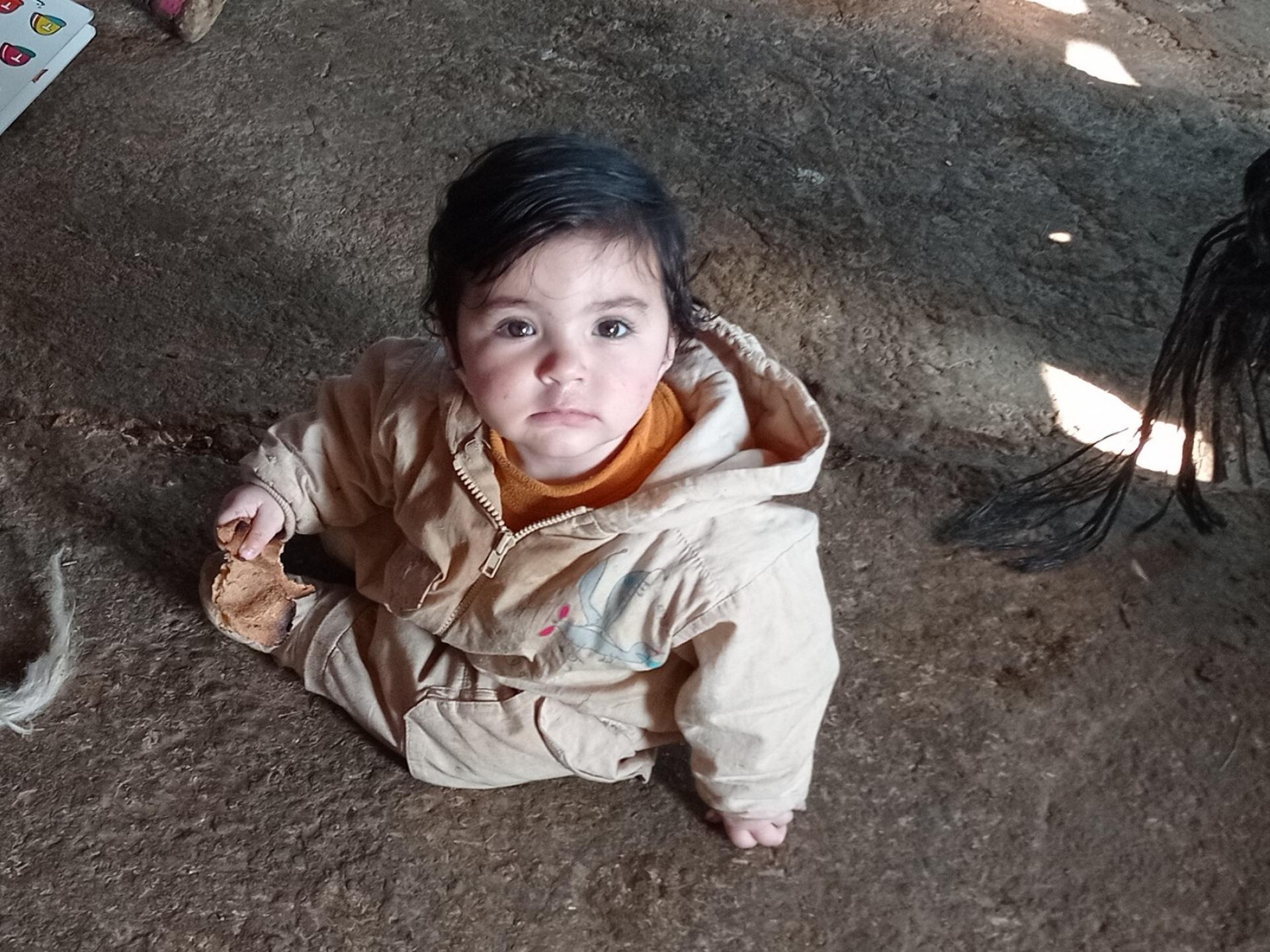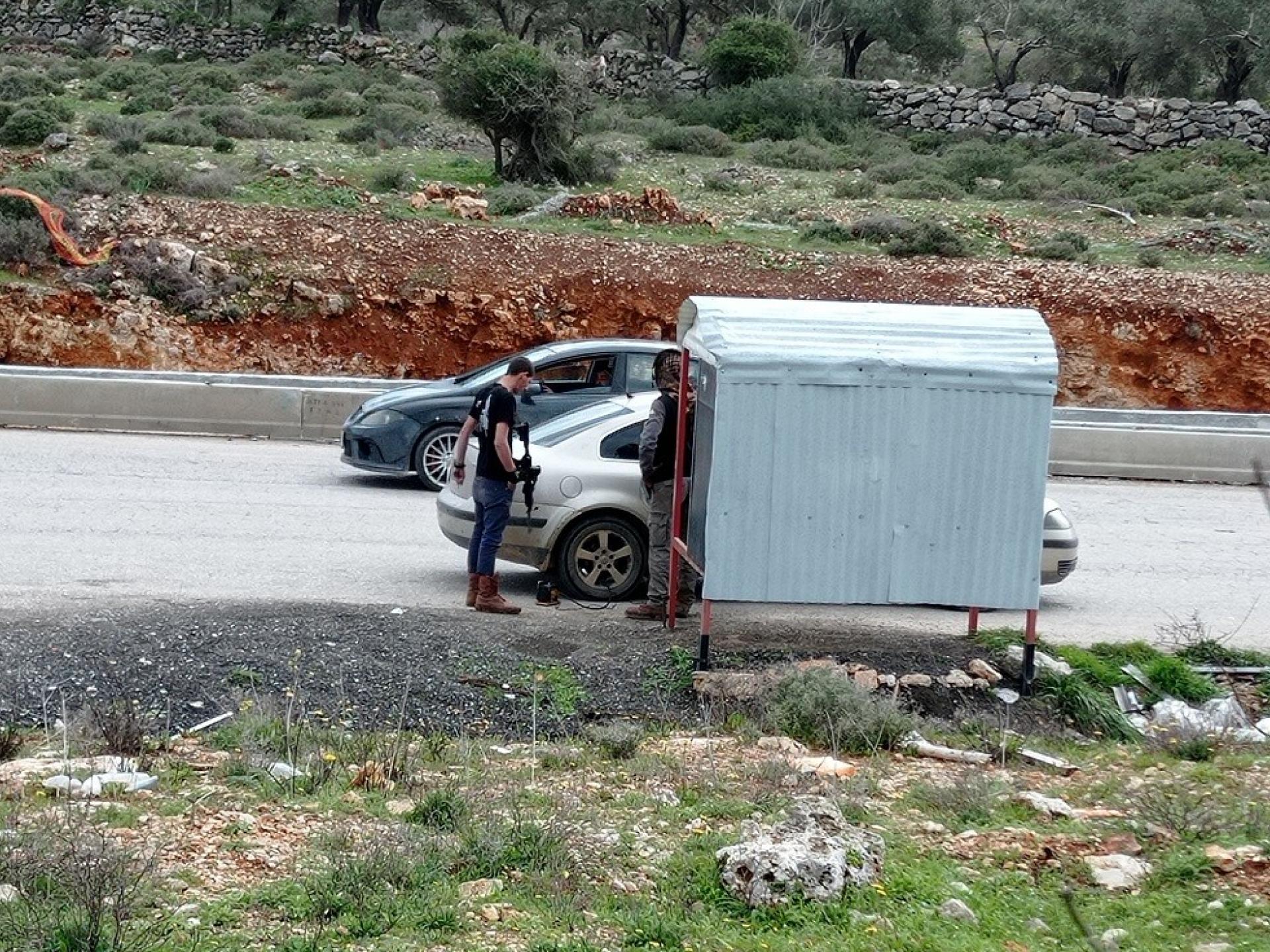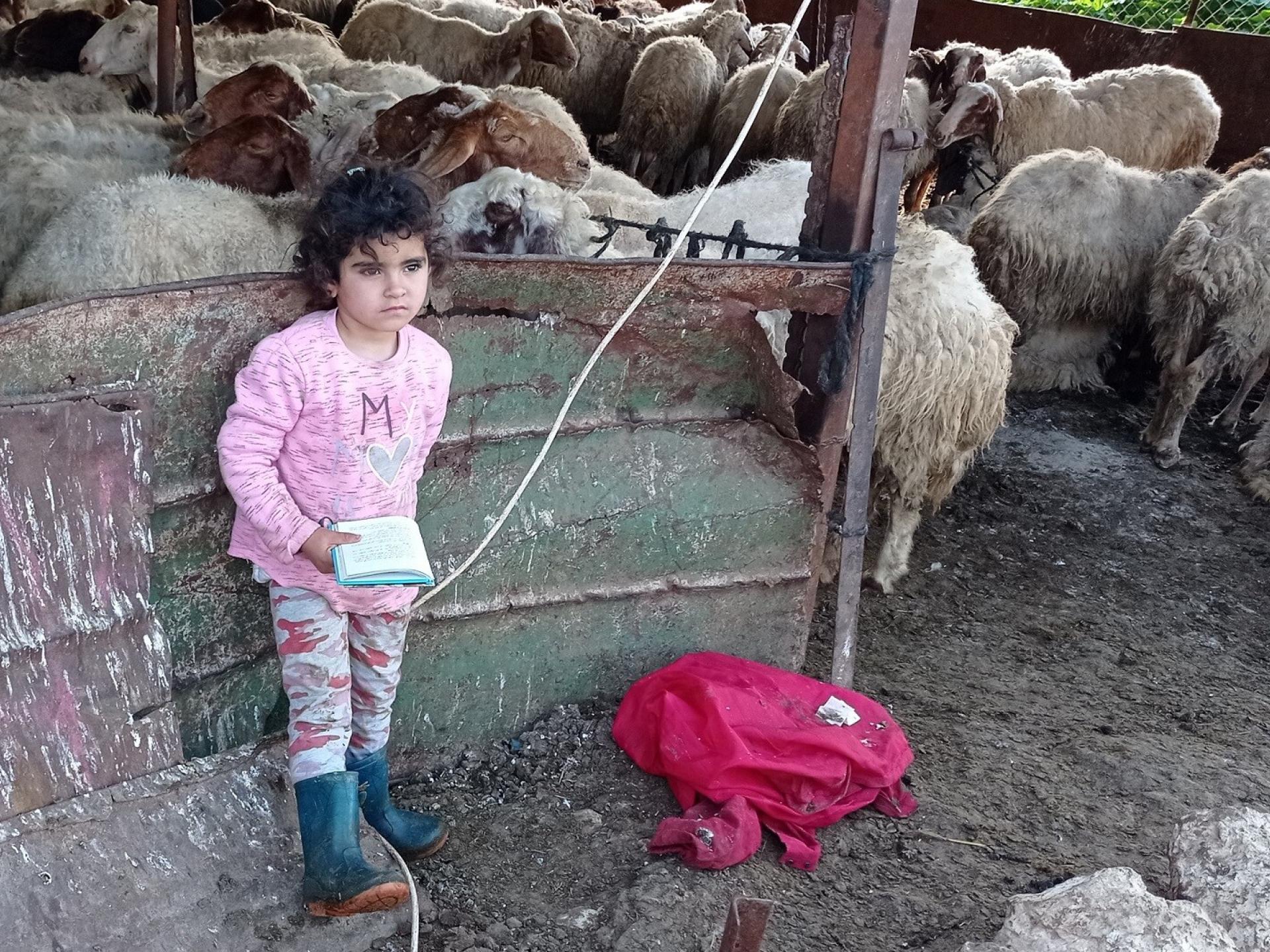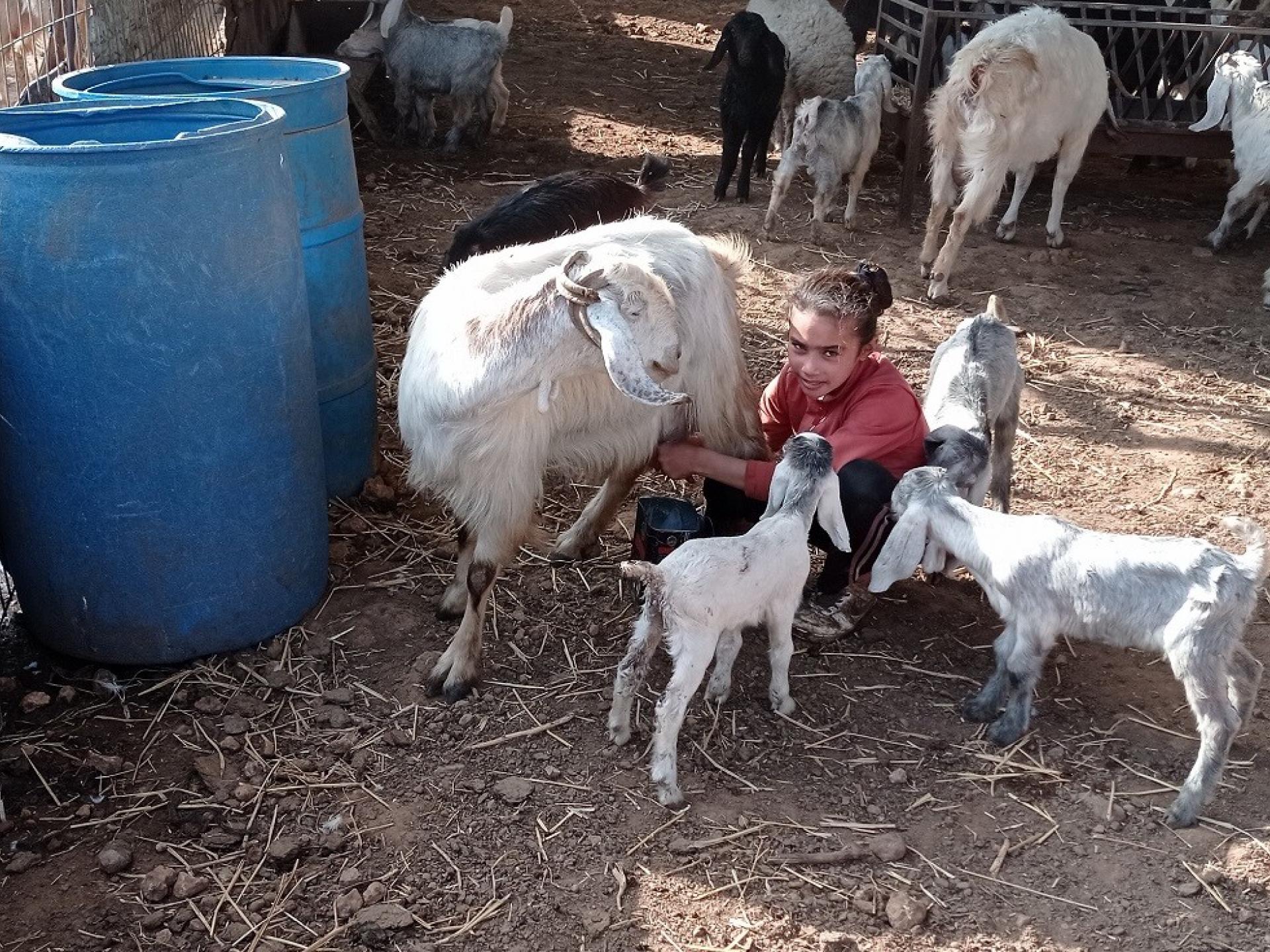Visiting the Jordan Valley: "Settlers have an exceptional permit"
We stopped at the entrance to Yatma/Qablan to meet Munir. 2 colonists turned towards Yatma and had a punctured tire. They were both armed.
Atouf – we drove there to bring Dalal money. Dalal lives in Ras Al Ahmar in a poor tent, and studies nursing at university in Jenin, 3rd year. We participate in the payment of tuition for her and other girls. We could not reach Ras Al Ahmar because the track was too muddy. So Dalal came with her brother to meet us at Atouf.
Below Rotem colony, opposite the old site of Al Farisiya, is a low hill with olive trees and date palms. On the hill are several tents, some of them deserted. About 12 years ago, Fayeq settled on the hill and raised a wonderful ranch, planting melons whose seeds he got from Denmark, and planted fruit trees. He brought the water from a spring located 3 km. away. After a short while, representatives of the ‘racial purity administration’ (called the Civil Administration ) – whose task is to demolish anything the Palestinians build and deny them water (even when brought from far away) – came and cut the pipes that bring water claiming that the spring is a nature reserve. Fayeq’s work all dried up. A year later he brought some generators and pumped salt water from En Al Hilwa, planted again, and once again the administration representatives came and confiscated the generators and pumps claiming that the little water he pumped was “drying up the Sea of Galilee” (!).
) – whose task is to demolish anything the Palestinians build and deny them water (even when brought from far away) – came and cut the pipes that bring water claiming that the spring is a nature reserve. Fayeq’s work all dried up. A year later he brought some generators and pumped salt water from En Al Hilwa, planted again, and once again the administration representatives came and confiscated the generators and pumps claiming that the little water he pumped was “drying up the Sea of Galilee” (!).
Fayeq gave up and went to work as a guard at the Mekhola colony, but every few days he still brings water from afar and irrigates the trees he planted. To this very day. We met Mahdi and Fayeq there, whom Daphne has not seen since. It was a very emotional meeting…
Mahdi told us about the hoof-and-mouth disease that has hard-hit the flock of Abu Saker at Al Hadidiya (and ended after all his lambs died). Adel at En Al Hilwa also had a high mortality rate among his cattle. The PA vet has since vaccinated all the flocks, but fear is great, and we try not to pass among the various communities. On our few visits we sanitized our shoes and tires.
We looked for Ahmad’s family at Al Farisiya, but missed it and reached their relative Nimr instead. He lives there nearly alone, with a bed-ridden wife, blind. We decided to keep in contact with him.
We brought a baby ’s crib and books to Ahmad and Iman’s family at Al Farisiya. The books (in Arabic) were donated by Kalansawa inhabitants whom our Arabic teacher had harnessed for the task. One can hardly describe the joy the books brought to all communities. The children fight over them and want to exchange them for books more adequate to their age (when such are available).
’s crib and books to Ahmad and Iman’s family at Al Farisiya. The books (in Arabic) were donated by Kalansawa inhabitants whom our Arabic teacher had harnessed for the task. One can hardly describe the joy the books brought to all communities. The children fight over them and want to exchange them for books more adequate to their age (when such are available).
We visited the families of Yusuf and Jajia, and Ashraf and Rima who told us that Abu Saker managed to overcome the epidemic his flock suffered but that all the lambs died. A harsh fiscal blow it is, beyond the pain of these young things.
Burhan was hosting representatives of the Red Cross, so he was not available to see us. We entered a sheep pen and spoke with his wife Samaher and daughter Na’ame, 3rd year nursing student, who were busy milking. After the Red Cross people left, Burhan told us that they had notified him that due to the fighting between Russia and Ukraine, prices of the barley feed for the flocks were going to rise very high, a harsh blow to all shepherds who can barely afford the costs of transporting water and the reduction of their grazing grounds because of the violent colonists. We met the charming Abu Halaf, and before leaving watched him walk off to his tent on the hill, and behind him in precise imitation, little Yaqeen(3.5 years old), Burhan’s daughter. (Nurit Popper photographed)
On our way back, we entered the colonist outpost on Sabih Mountain, Evyatar, which the colonists have left and is guarded by the army. Near the gate, in the dark, we ran into a family of colonists who were parking their car and whose many children were running around near the road. We stood too and watched. The soldiers at the entrance to the abandoned outpost tried to get rid of us, saying civilians were not allowed. When we asked what a colonist family was doing there, then – they answered “these people have outstanding permission”. Half an hour later the family left.




